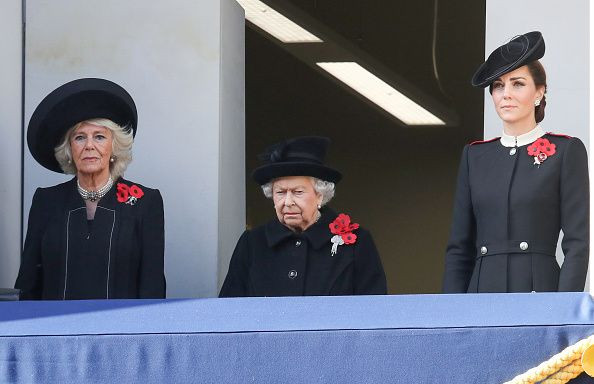Queen Elizabeth Wears Multiple Poppies During Remembrance Day For This Reason

Queen Elizabeth wears more than one poppy at Remembrance Day events for a poignant reason.
Rachel Russell, a journalist for Express, claimed that there is a theory suggesting that the poppies represent each service in the war, namely, the Army, the RAF, the Navy, the Civil Defense, and Women. This theory coincides with the five poppies that the Queen to Sunday’s service.
Camilla Parker Bowles and Kate Middleton also followed in the Queen’s footsteps of wearing more than one poppy. The two female royals also stood beside the Queen at the Remembrance Day Service, and rumors swirled that their position on the balcony is a hint at Bowles and Middleton’s future as Queen.
Robyn Darbyshire, a journalist for Mirror, also claimed that the Queen was actually just wearing a single corsage that was made up of five poppies and not five poppies separately. But at first glance, it seems as though Her Majesty pinned five flowers on her black coat separately.
After many decades as the head of the monarchy, the Queen has never discussed why she wears multiple poppies at Remembrance Day events. The Royal British Legion shop doesn’t also sell a set of poppies like the ones worn by the female members of the royal family.
Remembrance Day takes place on Nov. 11 throughout the United Kingdom and the Commonwealth. The day was originally known as Armistice Day, and it was organized to commemorate the fallen soldiers of World War I.
Every year, a two-minute silence is given to the fallen soldiers so that they can be remembered peacefully. This practice was done after a letter from Australian journalist Edward George Honey was published in the London Evening News on May 8, 1919.
Honey was the one that suggested the peaceful and respectful silence, and his letter was read by King George V. On Nov. 7, 1919, the practice was approved by the late King.
“All locomotion should cease, so that, in perfect stillness, the thoughts of everyone may be concentrated on reverent remembrance of the glorious dead,” King George V announced.
© Copyright IBTimes 2024. All rights reserved.





















